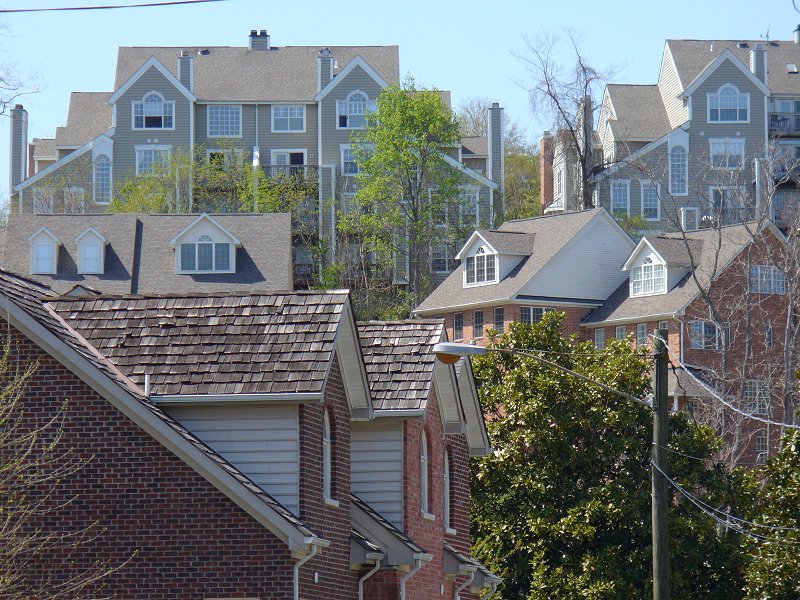
townhomes in Occoquan, built during 1990's real estate boom
Think of property rights not as a single "right," but as a bundle of different rights. You can separate some rights from others, allowing certain uses while retaining other ownership rights.
For example, if you own a townhome... you can rent it. The renter acquires from you some of the bundle of rights, such as the right to occupy the townhome. Without the transfer of those rights, as documented in a rental contract, the renter would be trespassing on your private property.

Similarly, if you own a farm with a woodlot, you can sell the timber rights. The logging company can harvest and remove the commercial timber, subject to the conditions in the contract signed with the landowner. The right to harvest timber or occupy a townhome may expire over time, but landowners can also sell perpetual rights. Deeds for almost all parcels with a house in Northern Virginia include perpetual easements for utility companies to place underground or overhead power/gas/water lines across the property. In other cases, you may share a driveway and your neighbor may have a "right of way" to provide legal access to their parcel.
No individual owns all the potential property rights in Northern Virginia. Like it or not, zoning is a reality here. Government agencies limit the potential to develop your land as a hazardous waste dump, or as a fast food restaurant with drive-through windows, or even as a homesite.
In the "State of Society" that exists in Northern Virginia now, it is mostly local elected officials (city councils, town councils, and Boards of County Supervisors) who pass the ordinances that affect most property rights and set tax rates for proprty taxes. The person you elect to Congress, or as President, will not be the person who can lower the property taxes you pay for your house.
When the courts interpret the laws, determining the "rules of the game" for controlling development, a key guide is the Fifth Amendment to the US Constitution:
For about a century, the Supreme Court has supported the rights of states to control development, citing the "police power" of government to ensure the safety, health, morals and general welfare of the public. If government controls are unreasonable, however, then courts have ruled that landowners must be compensated for the "taking." In addition, the defintion of "public use" is also subject to court interpretation. In the Kelo v. New London case in 2005, the Supreme Court allowed a government agency to condemn private property that was already developed, in order to facilitate a redevelopment of the area under a different private company.